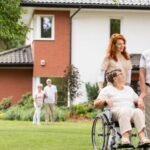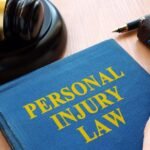In today’s world, where elder abuse remains a concerning issue, nursing home abuse is a distressing reality. Recognizing the signs and taking action is crucial in ensuring the safety and well-being of elderly residents. Knowing the steps to take if you suspect nursing home abuse can empower you to address the situation effectively.
From documenting evidence to reporting concerns to the appropriate authorities, each step plays a pivotal role in seeking justice for the victims and preventing future incidents. By being vigilant and proactive, we can work towards creating safer environments for our elderly population in nursing homes.
Recognize the Signs
Recognizing signs of nursing home abuse involves observing physical, emotional, and behavioral cues in residents. Physical signs may include unexplained injuries like bruises, cuts, or broken bones, which should raise immediate concern and prompt further investigation. Emotional signs may manifest as sudden changes in mood, such as increased agitation, withdrawal, or depression, especially when interacting with specific staff members.
Behavioral signs could include poor hygiene, weight loss, or unexplained changes in medication, indicating neglect or mistreatment. It’s crucial to pay attention to these indicators and investigate further if you notice any suspicious patterns, as early intervention can prevent further harm and protect vulnerable residents.
Document Everything
Documenting suspected instances of abuse is essential for building a comprehensive case and ensuring accountability. Keep detailed records of dates, times, and descriptions of observed behavior or injuries, providing context and clarity to the situation. Take photographs, if possible, capturing any visible signs of abuse to supplement written documentation. Gather statements from witnesses who may have observed concerning behavior, as their accounts can corroborate your observations.
Maintain copies of medical reports or documentation related to the incident, including any diagnoses or treatment provided. These records serve as crucial evidence if legal action becomes necessary, empowering victims and their advocates to seek justice and hold perpetrators accountable for their actions.
Report Your Concerns
Reporting suspicions of nursing home abuse to the appropriate authorities is imperative for ensuring the safety and well-being of residents. Contact local law enforcement, adult protective services, or state health departments to file a report, providing them with all the information you have gathered.
Be prepared to answer questions and provide additional details to aid the investigation process. Prompt reporting can expedite intervention and prevent further harm to vulnerable individuals, emphasizing the importance of speaking up and advocating for those who may be unable to do so themselves.
Seek Medical Attention
Seeking medical attention for the victim of suspected abuse is vital to address any immediate health concerns and document injuries. Take the individual to a healthcare provider for a thorough examination by a qualified professional. Medical professionals can assess the extent of any injuries and provide necessary treatment, prioritizing the victim’s physical well-being.
They can also document their findings, which may serve as crucial evidence in legal proceedings or disciplinary actions against negligent or abusive caregivers. Ensure the victim receives appropriate care and support during this process, prioritizing their comfort and dignity throughout their recovery journey.
Consult Legal Assistance
Consulting with a Lytal, Reiter, Smith, Ivey & Fronrath – Boca Raton Nursing Home Abuse Attorney who can provide valuable guidance and support for victims and their advocates. An attorney can help you understand your legal rights and options for pursuing justice on behalf of the victim, offering clarity and direction in navigating complex legal processes.
They can assist with filing complaints, gathering evidence, and advocating for the victim’s interests in negotiations or court proceedings. A skilled attorney can advocate for the victim’s rights and hold responsible parties accountable for their actions, providing a voice for those who may feel silenced or powerless in the face of abuse.
Follow Up Regularly
Staying proactive in following up on abuse allegations is essential for ensuring accountability and resolution in nursing home settings. Regularly communicate with authorities and healthcare providers involved in the investigation process, seeking updates on the progress of the investigation and any actions taken in response to the allegations.
Advocate for the victim’s rights and ensure that their well-being remains a top priority throughout the process, emphasizing the importance of transparency and accountability in addressing instances of abuse. By staying engaged and persistent, you can help ensure that perpetrators are held accountable for their actions and that victims receive the support and justice they deserve.
Ensure Safety and Support
Ensuring the safety and support of the victim is paramount in cases of nursing home abuse, requiring a coordinated and compassionate response from caregivers, advocates, and authorities. If necessary, consider relocating the individual to a different care facility where they can receive proper care and protection from further harm, prioritizing their safety above all else.
Arrange for counseling or therapy to address any emotional or psychological trauma resulting from the abuse, providing holistic support for the victim’s recovery journey. Provide ongoing advocacy and support to help the victim rebuild their life with dignity and respect, empowering them to heal from their experiences and move forward with confidence and resilience.
Conclusion
Suspecting nursing home abuse can be distressing, but taking prompt action is essential to protect the victims and hold perpetrators accountable. By recognizing the signs, documenting incidents, reporting concerns, seeking medical and legal assistance, and providing ongoing support, you can help ensure the safety and well-being of vulnerable individuals in nursing home settings.
















